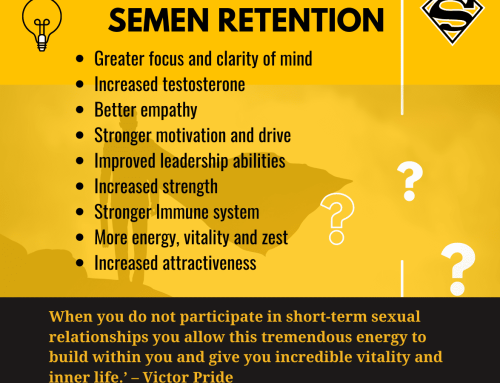Ever feel overwhelmed by emotion but find that you’re unable to process it? This is a situation that so many of us face every day and it affects individuals with mental health conditions, as well as those without. The problem with an inability to process emotion at the moment that it rises is that it becomes suppressed, manifesting itself in other forms, such as feelings of anxiousness, confusion, lack of concentration and anger.
Not only can this cause your mental health to suffer, it can cause a big impact in many areas of life, including work, home and relationships. With this in mind, I’d like to introduce Mental Emotional Release Therapy (MER). A therapy method that uses your internal memory storage system to alter your emotions and the thought processes that create them, it is a short-term process that is making serious and long-lasting changes in people’s lives. Read on, and find out everything you need to know about Emotional Release Therapy and how it can transform your life.
What exactly is Mental Emotional Release Therapy?
Put simply, MER can be compared to an emotional detox that can free a person from negative emotions. It can help them come to terms with grief, heal emotional pain and release suppressed emotions. It is also used in treating phobias and helping people overcome procrastination that is the result of trapped emotions and harmful memories.
A clinically researched therapy that is known for its fast method but long-term benefits, MER applies a therapeutic process to the internal memory storage system. Tapping into your ‘timeline’ (how we unconsciously store our memories), it alters how you store your memories, causing behavioural change. It can work in minutes, as opposed to alternative therapies which may take days, or even years. This creates quick but long-lasting change on a subconscious level that will alter negative behaviours and thoughts that have been ingrained into your brain as the result of a previous negative experience.
The memories and experiences that cause emotional distress may go as far back as your childhood and can often manifest themselves in seemingly unrelated ways. Following its quick treatment, MER enables you to regain emotional control, balancing feelings like anger, fear, sadness, anxiety and depression. This can cause huge positive changes in areas of your life that may have been particularly affected by your trapped emotions, such as in work, relationships or your diet and health.
In a two-year study begun in 2008 and completed by Dr Patrick Scott [http://www.drmatt.com/2012/07/03/efficacy-study-of-mental-emotional-release-therapy-aka-time-empowerment-for-depressive-disorders/], MER was used as an adjunct therapy with CBT to treat depressive disorders and certain adjustment disorders. The results found that, although MER therapy was a much shorter process than CBT, it had a longer length of stay and many of its clients had a remission of depressive symptoms. Amazingly, in a proportion of these clients, the depressive symptoms didn’t return. This has led to its popularity as an effective short-term treatment that can solve workplace procrastination, as well as phobias and symptoms of mental health conditions, such as anxiety or depression.
What are its benefits?
Emotional baggage can have a huge impact on a person’s life, affecting their everyday decision making, their outlook on life and limiting their goals and emotional desires or needs. Those feelings of “I’m not good enough”, “I don’t deserve this” or “I shouldn’t even try” are all directly related to suppressed emotions and will harm your ability in creating attainable and positive goals.
Mental and Emotional Release Therapy will help you come to term with the memories that are subconsciously altering your decision-making, feelings and thought processes and it will give you the ability to move forward with your life and regain control of your emotions. Following treatment, you may find yourself receiving more positive achievements and advancement in the workplace, relationships and in your body and health. Perhaps that marathon you wouldn’t previously even consider is more achievable than you realised.
As well as helping to resolve and alter negative behaviours and thought processes, MER can also help alleviate physical pain in people who are controlled by PTSD or trauma that results from an injury-causing incident. By coming to terms with and releasing trapped emotions and memories, you can enable your body to heal, without subconsciously using your harmful memories as setbacks.
How do I know if I need Emotional Release Therapy?
Ever found yourself snapping at a colleague or shouting at the kids for no other reason than feeling overwhelmed? Or perhaps you can relate to a sudden desire to stop everything that you’re doing to set yourself up to fail. There are many ways that suppressed emotions may manifest themselves, from small, hard to recognise behaviours, such as overeating or procrastination, to bigger and more harmful behaviours like self-sabotage or symptoms of depression and anger.
For many people, they are completely unaware of just how much their suppressed emotions are affecting their lives, and it affects far more people than you may expect.
If you can resonate with feeling overwhelmed and taking it out on other people or in other areas of your life, or if you notice that you find it difficult to regulate certain behaviours or patterns, consider MER therapy. Anyone can benefit from it, and even if you are unsure of whether you necessarily need it, there are certain MER practices that can help everyone, without the need to commit to therapy.
How can I use emotional release now?
An emotional release doesn’t necessarily need to be confined to therapy. To gain an instant benefit from it that is less daunting than therapy, you can apply simple measures and activities to your everyday life as a way to give yourself a moment of respite and release any pent-up emotions that you may be having.
Music is particularly effective at helping to guide emotional release. According to a 2012 study [http://www.tandfonline.com/doi/full/10.1080/02699931.2011.595390?scroll=top&needAccess=true] by the psychologists Myriam V. Thoma, Stefan Ryf, Changiz Mohiyeddini, Ulrike Ehlert and Urs M. Nater, music can trigger both basic and complex emotions. In their study of “Emotion regulation through listening to music in everyday situations”, they also found that emotional regulation can subconsciously inspire the type of music that we decide to listen to.
To practice emotional regulation through music, make sure that you have access to a cosy, safe space that is quiet and private. Make sure that you are comfortable and that you can listen to music either on headphones or speakers. Headphones can create a more cocooned, exclusive environment.
If you’re feeling like you’re wound up and are too stressed, take a moment to listen to a particular song that resonates with you. In this case, it may be something upbeat and energetic to give you a quick burst of power. Or, if you’ve been feeling upset and angry for no particular reason, it will be a song that makes you want to cry. Take a moment to let the sounds flow through your mind, letting it trigger any emotional responses that may occur. Music is a wonderful emotional tool, and there’s no harm in using it to have a good cry and release those suppressed thoughts and emotions. You will feel like a weight has been lifted from your shoulders following your emotional release. It can also help you gain better concentration, focus and judgement which is perfect for work or family situations.
MER can create a hugely positive impact on your day-to-day, helping to boost workplace productivity and the success that you can achieve in your personal and professional life. For more inspiration or to discover alternative ways that can help you detox your emotions, find out more [https://www.clearthepath.co.uk/how-to-use-emotional-release].



